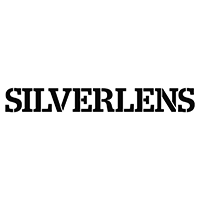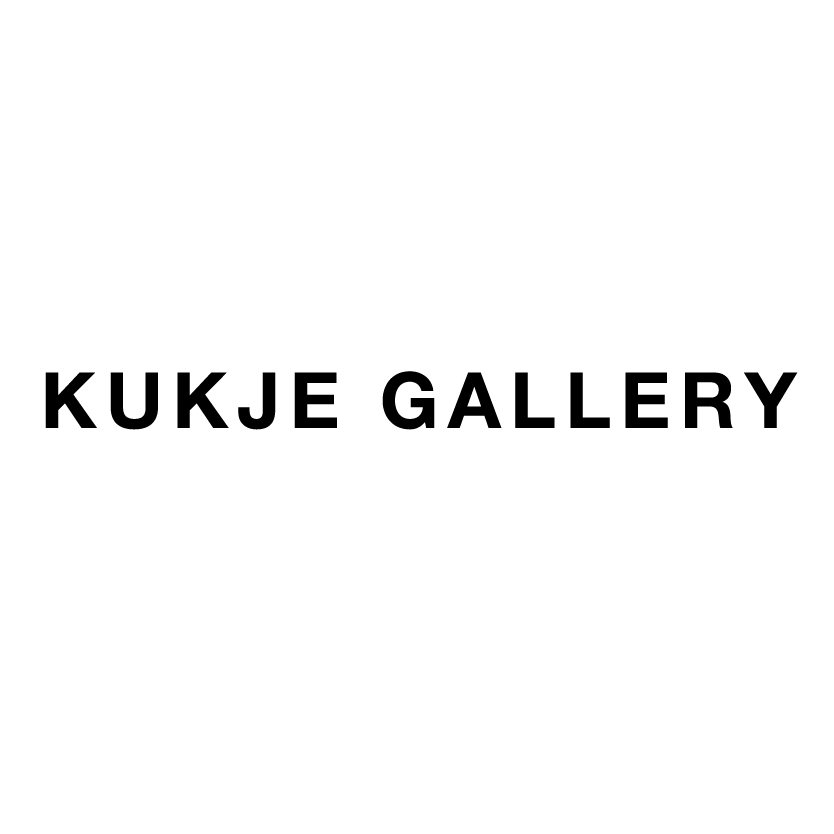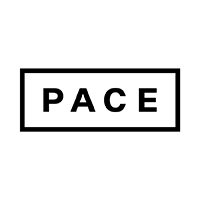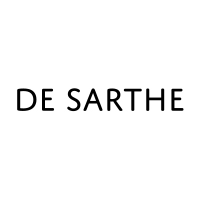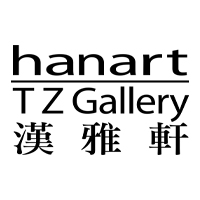The Body You Want
By Taeyi Kim

Installation view of "The Body You Want," 2023, Asian Arts Initiative, Philadelphia. Photo by Constance Mensh. Courtesy Asian Arts Initiative.
The Body You Want
Asian Arts Initiative, Philadelphia
April 14–August 5, 2023
At the intersection of 10th and Arch Street in Philadelphia’s Chinatown an iconic 40-foot Friendship Gate has enjoyed a unique presence since 1984. A hub for generations of Asian immigrants, the neighborhood brims with a certain vigor: mom-and-pop grocery stores by day, speakeasies by night. Embracing this nascent atmosphere of creativity is a multidisciplinary arts center known as the Asian Arts Initiative (AAI). Founded in 1993 as a nonprofit, AAI has been proactively engaged with the Asian American community through myriad artistic programs.
“The Body You Want” was another extended response of the institution to the community that opened earlier this spring. Rather than solidifying the minoritized ethnic or cultural identity by highlighting racial differences, the show brought together six Asian and Asian American artists under the umbrella of the LGBTQ+ community. Participating artists Jaewon Kim, Jongbum Kim, Jason Vu, Eva Wu, Shawna Wu, and Yidan Zeng portrayed how the environment they grew up in shaped their identities, as well as their experiences of, and perceptions toward, queer bodies.
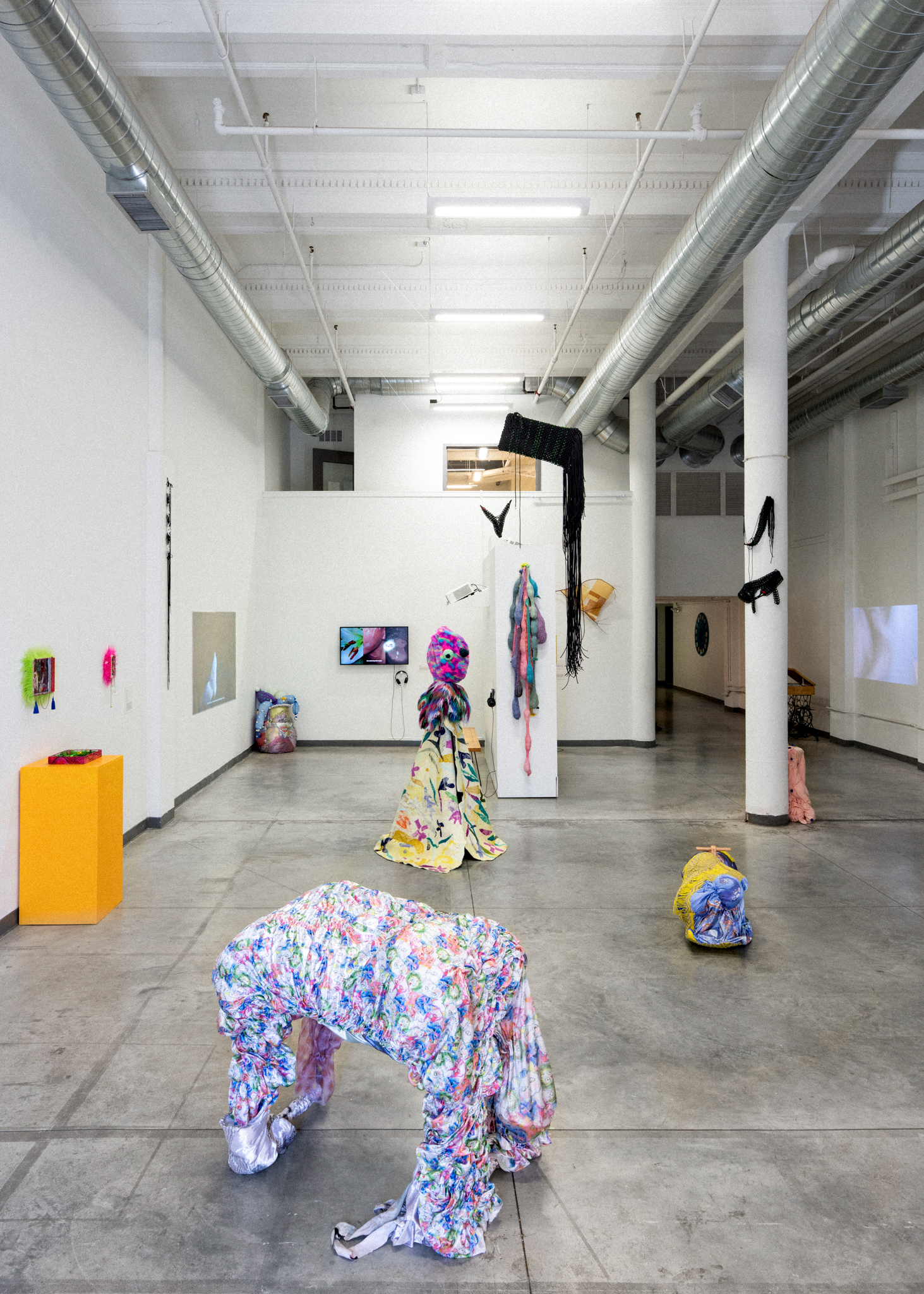
Installation view of "The Body You Want," 2023, Asian Arts Initiative, Philadelphia. Photo by Constance Mensh. Courtesy Asian Arts Initiative.
The array of color, as well as the large space, captured viewers’ attention upon entering the main gallery. Among the many works included ten colorful textiles produced from recycled clothes by Jongbum Kim, a New York-based multimedia artist and designer born in South Korea. Kim revitalizes once-discarded fabrics by utilizing multiple handcraft techniques such as weaving, tufting, and knitting. Taking over a corner of the room was a vivid interweaving of colorful threads, Forest Spirit (2022), in the form of a chair and a rug, fashioned out of recycled garments using a technique of needle punch felting. Aside from the chair, Nirvana (2022), a four-meter-wide hand-drawn illustration of nirvana patterns digitally printed on cotton and canvas, covered a large window with its orange-and-green patterns. Located at the center of the room, The Unknown (Alien) (2022) embodied a human-like stick figure with a fluorescent pink-and-blue head on top of a flower-pattered torso and recycled faux fur around the neck. For Kim, exploration of the medium parallels the exploration of the queer identity—subtle and invisible, yet indisputably distinct and intricate.
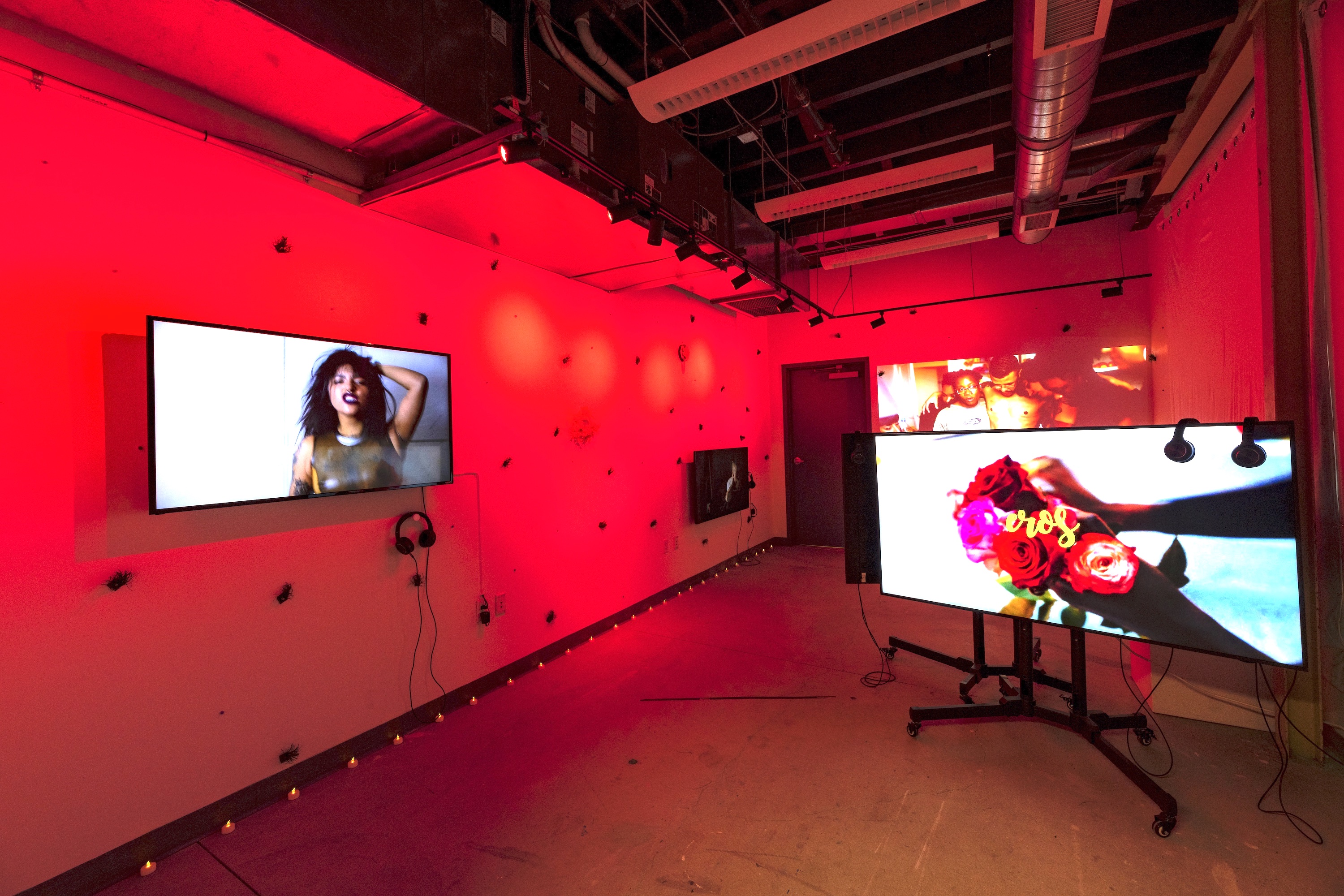
Installation view of EVA WU’s videos at "The Body You Want," 2023, Asian Arts Initiative, Philadelphia. Photo by Constance Mensh. Courtesy Asian Arts Initiative.
At the back of the main gallery a small theater-like space with red lighting diffused a distinct, if not erotic, ambiance. On the walls there were seven videos (with one standing on the floor) by Eva Wu, a biracial artist born in New Mexico, featuring queer communities and sex workers of disparate gender, age, and ethnicity. Each group in the films explores and challenges established cisheteronormative notions and concepts of sex, sexuality, and pornography. In Baby (2018), an eight-minute film in which a performer engages in something alluding to solo strip tease, Wu depicts the queer/lesbian romance in a playful yet sensuous manner, rather than the hyper-erotic, sexualized way often imposed by society.
Navigating the venue entailed a constant switching between medium, color, and theme, exemplified by the lyrical and minimal works of Yiden Zeng’s Heartland (2023). Comprised of a torn pillowcase and typewritten inks, it carried an essence in relation to Shawna Wu’s handknitted works of Butterfly Knot Harness, which featured black lingerie hanging from the ceiling. The audio narrative and still photos in the films of Jaewon Kim, Spit and Swallow (2021) and Nuance (2022), which observes the lives of those living with HIV/AIDS, created a stark contrast compared with the dynamic and rhythmic movements of the body in Jason Vu’s film Princess (2021) and Sometimes, Let Go (2023).
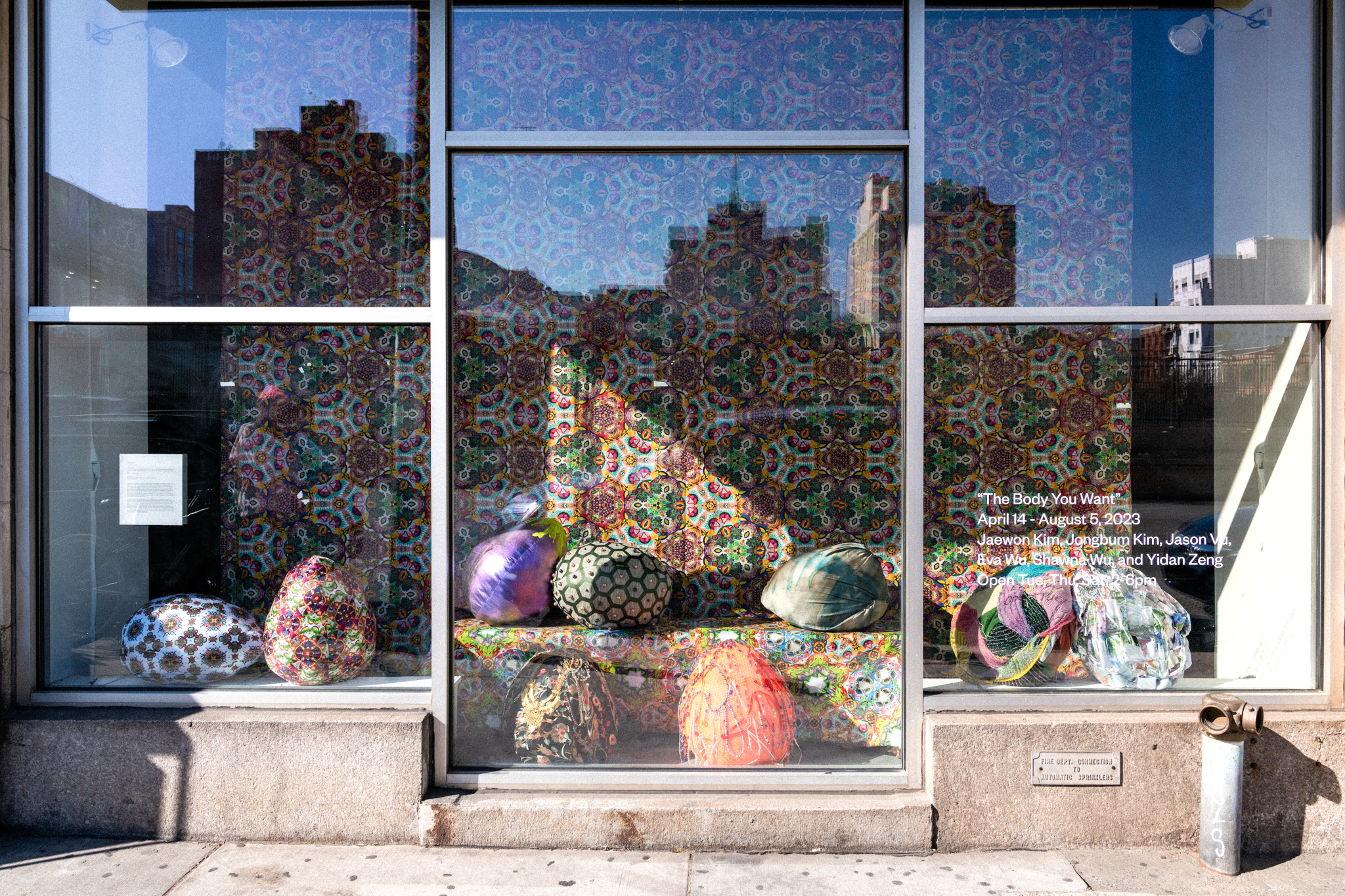
Installation view of JONGBUM KIM’s Nirvana, 2022, hand-drawn illustration, digitally printed on cotton and canvas, 304 × 411 cm, and The EGG, 2023, hand-drawn illustrations, digitally printed on satin jersey and silk, embroidered with recycled beads and threads, hot fix, faux fur, painted with acrylic, knitted with recycled yarns, necklaces, recycled fabric, 61 × 53 × 51 cm each, at "The Body You Want," 2023, Asian Arts Initiative, Philadelphia. Photo by Constance Mensh. Courtesy Asian Arts Initiative.
To make our surroundings familiar with elements that lie outside the boundaries of the mainstream, liminal spaces must be repeatedly accentuated in order to leave their mark. The process may unintentionally generate exaggerated stereotypes and frameworks, resulting in a generalization and removal of distinct details. “The Body You Want,” however, extracted the differences and variegated individuality among each of the artists, while bringing subthemes under the coherent value of the LGBTQ+ community. A dance such as this, between universality and individuality, opens up another vibrant thread of possibility to interweave with the community in a creative, boundless manner.
